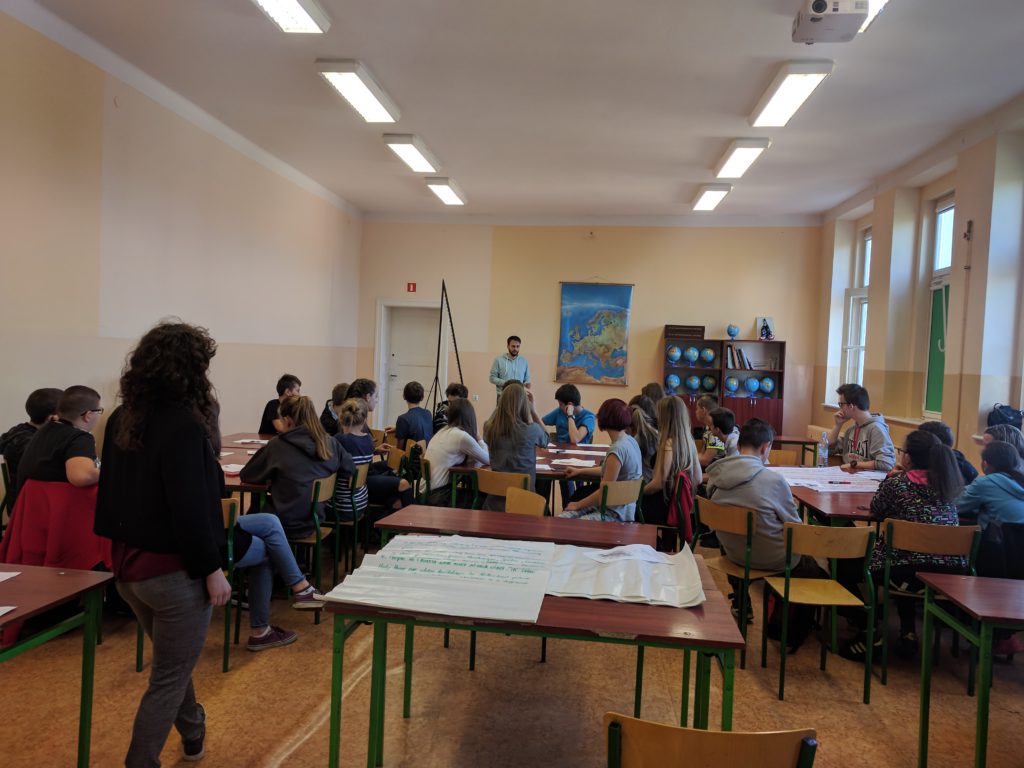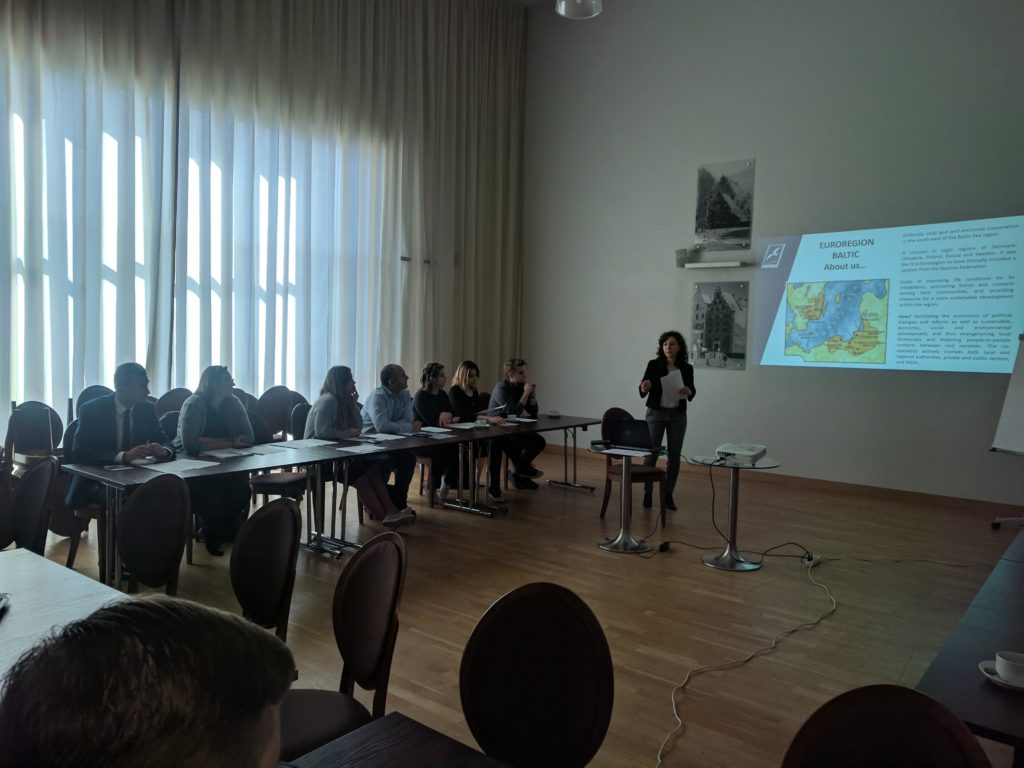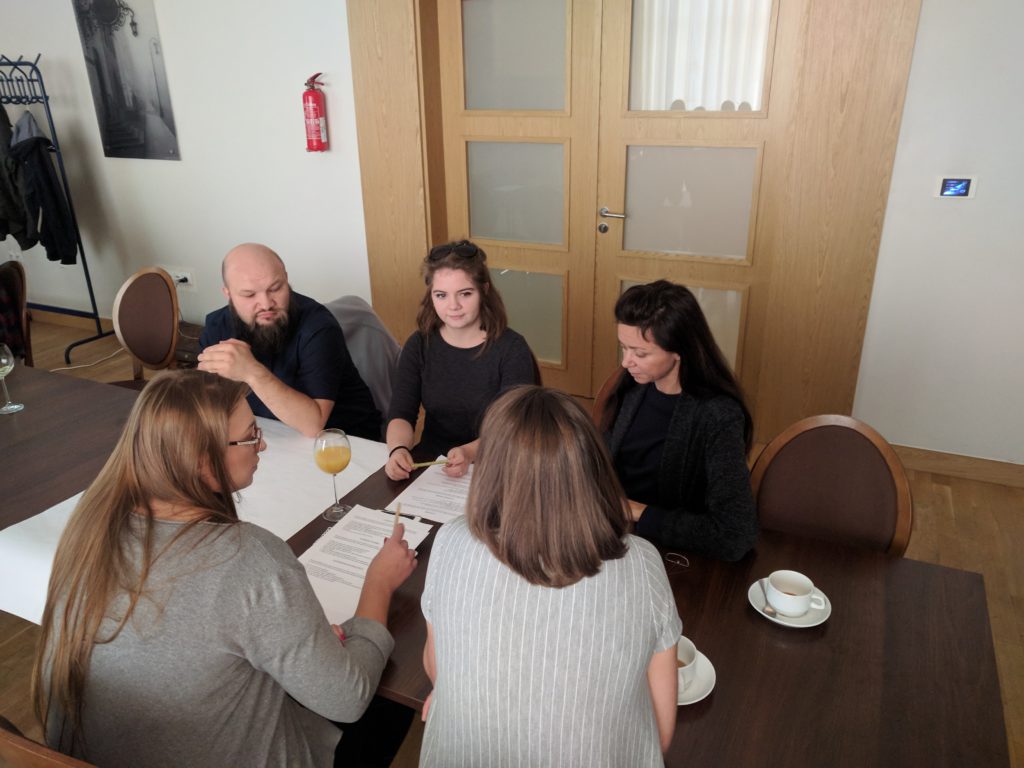The SIA4Y “Right of information access from the youth perspective” workshop took place from 6th-7th March in Elblag, Poland!
The event was organized by the Association of Polish Communes of Euroregion Baltic and brought together 100 young people! There were participants from several Lithuanian cities (Telšiai, Vilnius, Eigirdžiai, Klaipeda), the Russian city of Kaliningrad, Sweden (city of Hässleholm), Poland (Elbląg, Gdańsk, Nowe Miasto Lubawskie, Iława, Dzierzgoń, Olsztyn, Gdynia, Słupsk, Otomin, Warsaw, Przezmark), Italy and Greece!
On 6th March, the participants from abroad arrived in Elbląg! There was a joint dinner and a small local tour by Mr Marcin Żuchowski and Ms Paulina Lieder before the participants’ went to rest and prepare for the forthcoming day!
On 7th March, the workshop ensued in the Town Hall of Elblag. It opened with a speech by Ms. Malgorzata Samusjew, Director of the Association of Polish Communes, workshop host organization. Ms. Valentina Scandola, organizer of the event, introduced the agenda of the day and launched a social media contest, giving later the floor to Ms Magda Leszczyna-Rzucidło, representing the Polish Economic Society Branch in Gdańsk, who introduced the project “SIA4Y- Strengthening Civil Society Participation through Public Information Access for European Youth”.
The day was divided into two main workshop sessions, whose main scope was to bring the topic of “right of information access” in the foreground, also trough a synergy between SIA4Y, CaSYPoT and SB YCGN project. The Association of Polish Communes of Euroregion Baltic, in fact, had a chance to keep a fil rouge with the youth-related activities that have been implemented in the last two years. The first one on “Responsible relationships and youth civic engagement”.
The first session was held by Marcin Żuchowski and Agata Ludwiczak, from the hosting organization. The second session, instead, counted on Mr Sergejus Muravjovas and Ms Ieva Duncikaite’s moderation from Transparency International Lithuania with the title: “Model Your Municipality: Participatory Budgeting Session”.
“Responsible relationships and youth civic engagement” session:
At their first task, the participants were divided into 8 groups and asked to answer questions on 8 youth tools, which had a distinct goal each, and were written on large pieces of paper across 8 separate tables. Each group would then proceed to the next table. The tools were: employment mobility, youth information, Youth Centers, youth media, Schools of the Future, School’s Youth Zone, Baltic Youth Week, SB YCGN local round-table meetings-suggestions.
Before the launch of the second session, the winners of the social media contest were prized with lots of tech prizes and the participants had a lunch break in an adjacent room where a rich buffet was laid out.
“Model Your Municipality: Participatory Budgeting Session”:
In this part, participants were partnered according to their home towns and asked to think of and create the budget for a common project that would benefit their municipalities. The allowed budget for the participants was 100 000 euros and they had to present their idea along with the expenses that it’d require. Afterwards, each group presented the idea they came up with and finally the audience had the chance to vote for the idea they considered most interesting and likely to be implemented. The team from Tricity area presented a beach cleaning system and received the most votes. Special mention should be made of the participants from the Elblag-Kaliningrad group who proposed an international cultural festival and the team from Nowe Miasto Lubawskie who presented a very detailed budget.
The workshop closed with a presentation by Mr Dominik Kwiatkowski about the participatory budgeting in the city of Słupsk and a focus group discussion conducted by Mr Marcin Żuchowski about the situation of youth in their schools. This last session was held in the frame of YCGN project.
In general, it was a really fun and educational workshop and its young participants had the chance to get more informed about their rights and opportunities to communicate with and influence their municipalities!
By IVY Theodora Chatzipanteli


